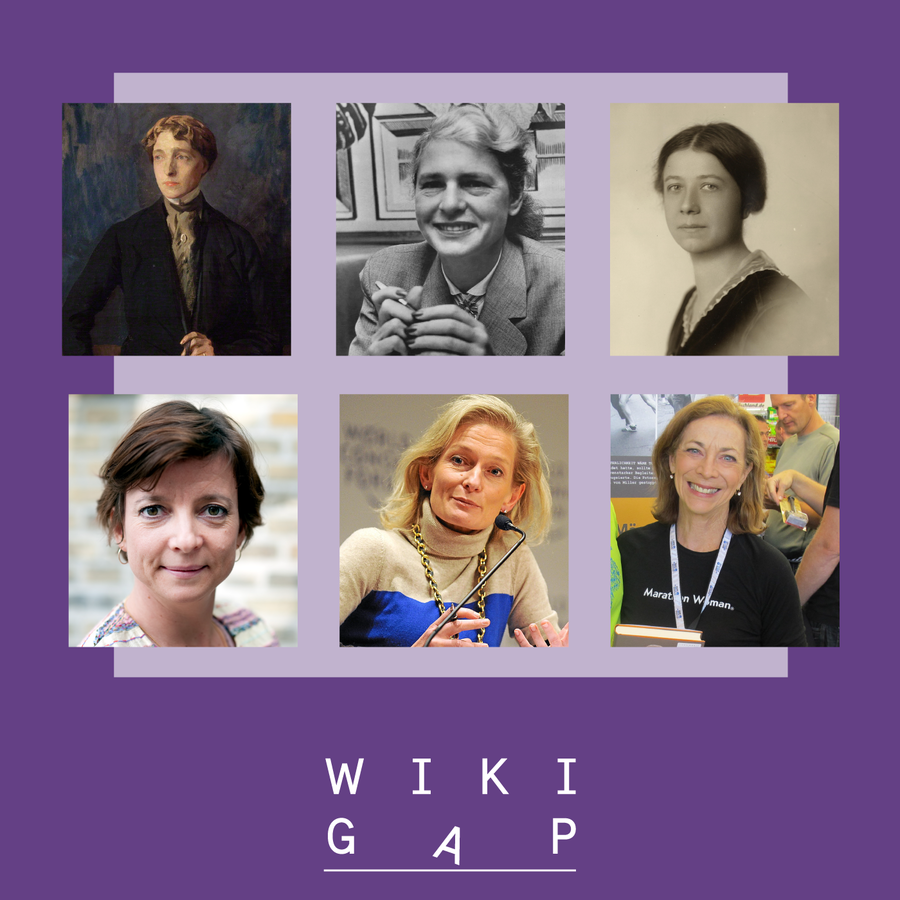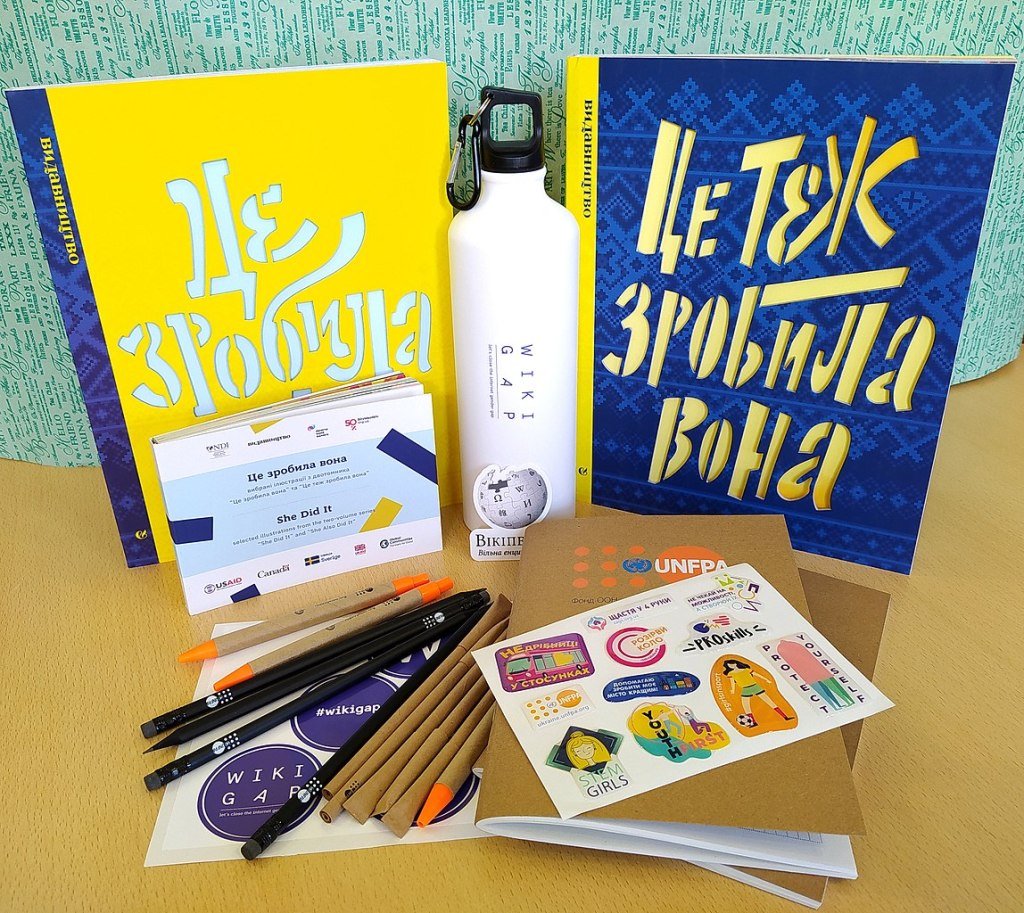In 2021, Ukranian Wikipedia joined WikiGap for the fourth time since 2018. The challenge was held on March 5-21 and helped attract over 700 articles about women in Ukrainian on Wikipedia from more than 100 users. In this article, we at Wikimedia Ukraine are sharing key results of the campaign and some of the insights we’ve learned from organizing it.
Along with partners, Wikimedia Ukraine has been organizing WikiGap in Ukraine ever since the global challenge was initiated in 2018 by Wikimedia Sverige and the Swedish Ministry of Foreign Affairs. Over four years, 300 participants created and improved 2800 articles about women on Ukrainian Wikipedia.
In 2021, we joined the global initiative once again. In Ukraine, the challenge was organized jointly by four partners – Wikimedia Ukraine, Swedish Embassy in Ukraine, National Democratic Institute, and UNFPA Ukraine.

(general design by Anastasiia Ivashyna, all sources on Commons)
WikiGap 2021 results in Ukraine
The Ukrainian campaign was held on March 5-21 and helped attract 721 articles about women in Ukrainian on Wikipedia from over 100 users.
We held a webinar for participants, with a presentation about Wikipedia and a motivational speech from a Swedish entrepreneur. 35 people joined in real time, and the recording has been available for further use.
As part of the drive to incentivise the quality of articles, this year organizers offered special prizes for authors of articles recognized as “good” by the Ukrainian Wikipedia community. So far, two articles from WikiGap 2021 have been featured, about 19th century Ukrainian revolutionary Teklia Donetska and about women in heraldry.
For the first time, Ukrainian Wikiquote joined WikiGap with a separate sister challenge. It yielded over 170 articles from 18 participants. For example, the participants created an entry about American painter Georgia O’Keeffe and improved the article about political theorist Hannah Arendt.

(photo by Vika Ivankiv)
All active participants – those who created or considerably improved at least two articles according to WikiGap and Wikipedia rules – received souvenirs from organizers by post. We scanned the participants’ contribution to check whether they conformed to Wikipedia policies, and provided feedback to some participants on how to improve their contribution after the challenge.
Communication about WikiGap and other insights from organizing
To promote WikiGap online, this year we’ve beefed up its communication support on social media. For example, only on Wikimedia Ukraine’s main Facebook page we published 24 posts about the challenge with an average reach of 1280 people per post; the video story has been viewed almost 4,000 times so far. Some social media visuals from WikiGap 2021 in Ukraine are available on Commons.
To celebrate the contributions of WikiGap participants, Wikimedia Ukraine along with partners created a (Ukrainian-language) video story about them, featuring ten Wikipedia volunteers.
The most effective way of attracting new participants was the CentralNotice banner on Wikimedia projects. We also used MessMessage to remind about the challenge to previous year’s participants on Wikipedia, as well as communicated with news media – we prepared two press releases before and after the campaign, which helped achieve some publications in press, and gave an interview about the challenge to a major nationwide radio station.
Sadly, we’ve seen fewer “newbies” joining this year, perhaps because of the absence of in-person training sessions thanks to the pandemic. For the next projects, the key challenge we are looking to figure out is how to effectively attract and train new users online, while also hoping for the resumption of offline events.
On the other hand, it’s heartening that over the past years, there emerged a community of long-time WikiGap contributors in Ukraine. According to Wikimedia Ukraine’s survey, over 40% of this year’s active participants were planning to join WikiGap well in advance. Over 90% of participants are planning to join future challenges.

Can you help us translate this article?
In order for this article to reach as many people as possible we would like your help. Can you translate this article to get the message out?
Start translation